Rebar (reinforcing bar), usually made from ridged carbon steel, is a construction product mechanically anchored in reinforced concrete and masonry structures to improve tension. Rebar testing is a basic tensile test, where an escalating tensile load is applied to a rebar specimen until it yields or breaks, revealing important data about the specimen’s strength.
Our complete solutions for rebar tensile testing include:
- Highly stiff, floor-standing servo hydraulic load frames for a range of force requirements
- Intuitive, versatile and user-friendly software with powerful test design capabilities
- Digital controllers with high channel density, high capacity and superior configurability
- Hydraulic grips with special inserts for rebar specimens
- Comprehensive selection of accessories including grips, extensometers, and furnaces
Test Standard
- BS EN ISO 15630-1
- ISO 6892-1
- BS 4449
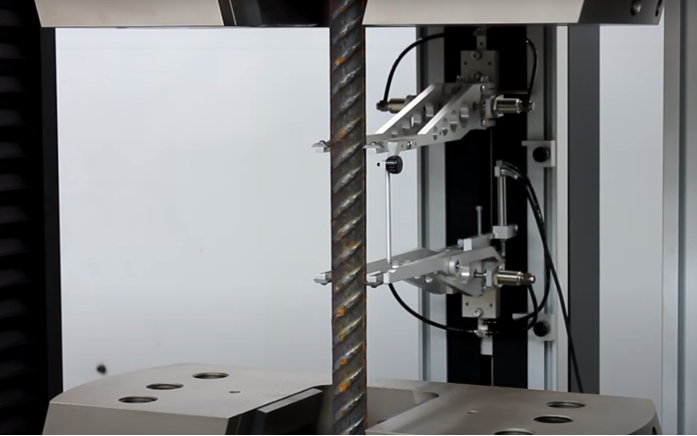
Hydraulic
The Charpy impact test is a destructive method and standardized high strain rate test which determines the amount of energy absorbed by a material during fracture. Absorbed energy is a measure of the material’s notch toughness.
With pendulum energies from 150 to 450 Joules, this metal impact test system is designed to comply with ASTM and ISO standards. Equipped with powered pendulum retrieval, precision bearings, machine enclosure with interlock and several other safety features. Optional auto specimen feeder and integrated cooling chamber increase productivity and minimize operator error.
Key Products Features
- Durable / Reliable: Rugged cast iron frame absorbs shock and vibration for more accurate results
- Accelerated Testing: Auto specimen feeding device ensures specimen is struck at the correct temperature within the five second testing requirement
- Accurate / Repeatable Results: High-resolution, frictionless encoder for accurate measurement of impact angle
- Easy, Intuitive Use: Ergonomic control panel with touchscreen display
- Advanced Safety Features: Reliable disc brake for quick pendulum braking
Test Standard
- ASTM A370
- ASTM E23
- BS EN 10025-1
- BS EN 10025-2
- BS EN ISO 148-1
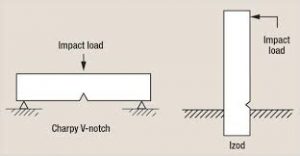
Charpy & Izod Test

Impact Hammer
Many metal pipes or vessels have rubber or other linings on the inside diameter for transport or mixing of certain fluids. There is a common requirement to be able to inspect the bonding between the metal and liner.
By using a transducer that can penetrate the rubber through the bondline, the amplitude of the interface can be measured with a flaw gate. Good bonding will attenuate the signal. A disbond will return a higher amplitude echo since the sound cannot now penetrate the rubber.
Initial tests with a 5MHz tranducer showed that we did not penetrate the rubber since a known disbond was not resolved. Therefore a lower frequency 2.25MHz was used with a composite construction to give better penetration and an improved signal to noise ratio. A dual-element was also required because of the curvature of the pipe; a single element was too sensitive to rocking of the transducer.
Solution
- Raptor Imaging Flaw Detector
- RCA-10 or RCA-18 scanner
- Dual-element 2.25MHz composite transducer (1/4”) Part No. AE07E06
Pipes and vessels with bonded internal liners can be inspected for disbonds automatically using the Raptor and RCA-10 or RCA-18 and a low frequency composite dual-element transducer.
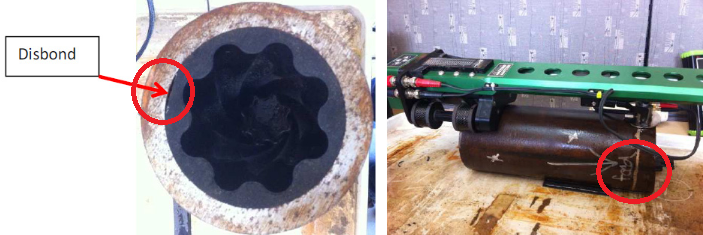
Bondline
Main Features
- 600 tests per hour
- 200 samples capacity with continuous loading
- Automatic startup and calibration routine
- Unlimited number of unattended tests
- Barcode reading for samples and reagents
- No disposable cuvettes
- Long-life cuvettes with integrated wash & control station
- Cadmium module for Nitrate analysis
- ISE module for pH, conductivity and redox analysis
- Capped tubes
- New software with touch screen
- Bi-directional LIMS ready
- Ready-to-use reagents
- Green technology
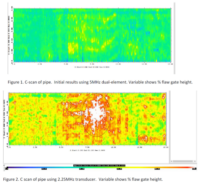
Bondline
Main Parameters
- Alkalinity
- Ammonia
- Calcium
- Chloride
- Chlorine
- Chromium
- Cyanide
- Fluoride
- Hardness
- Iron
- Manganese
- Nitrate
- Nitrite
- Phenol
- Phosphate
- Protein
- Silicate
- Sulphate
- TKN
- TKP
- Turbidity
- Urea
Ultra-stiff, four-column servo hydraulic load frames, dynamically rated to deliver loads ranging from 1 to 30 MN. Higher capacity load frames and unique features can be custom engineered to order.
Applications:
- Bend
- Compression
- Dynamic Testing
- Fatigue
- Fatigue and Fracture
- Tension
- Stiffness and Strength Measurement
High-Force Test Material
- Concrete
- Materials
- Aircraft Panels
- Wind Turbine Blade Sub-components
- Building Materials
- Metals
- Piping and Tubing
- Rebar
- Chain
- Structural Steel
- Wire and Cable
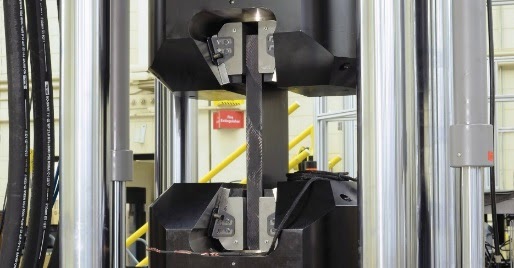
High-Force Test Systems
